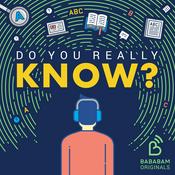Is My Child A Monster? A Parenting Therapy Podcast

102 episodes

How To Use Validation To Prioritize Family Relationships With Special Guest Dale Rubury
09/9/2025 | 41 mins.
This is the 100th Episode of the podcast. And for 100 episodes it has been the goal to help parents understand their children so as to create a validating environment as well as a foundation of connection for your child’s wellbeing. In this episode, Leslie and Dale focus on how to make attending to the relationship with your child a high priority especially when there are escalating emotions. What’s the goal of your interactions with your child? Today’s episode explores the three goals of interpersonal situations from Dialectic Behavior Therapy as well as the six levels of validation.Time Stamps3:38 What are the three goals of interpersonal situationsThe objective of the situation - balancing the short term vs long termAttending to your self-respectAttending to the relationship and how the person would feel after the interaction9:56 Escalating emotions is an indication that you may need to change your priority of the three goals10:10 When the relationship is the number one priority in order to create the foundation of connection for your child’s wellbeing11:53 Why is validation so important and what does it meanValidation is acknowledgment, not agreementParents need to practice “biting their tongue” so as not to invalidate your child16:20 Discussion of invalidation - Dale’s personal experience18:25 Mysophonia is a diagnosis that validates the sensory overwhelm that some children/people feel21:20 The respect you give your child will in turn often lead your child to respect you.22:58 Beware of double down on getting your objective met when misbehavior shows up.23:50 Change course means changing your priority from the objective to the relationship24:34 The Six Levels of Validation25:20 Level one: Paying attention26:41 Level two: Reflect back27:54 Level three: Reading minds30:42 Level four: Understanding32:16 Level five: Acknowledge the valid33:32 Level six: Show equality35:10 Choosing the level of validation that works is up to the individual and the situation36:56 Examples of Functional Validation 38:30 Use the phrase: “What I just said might have felt invalidating to you” when someone gets upset with something you might have said 39:10 Match your intention with the impactLeslie-ism: I want to say to parents: it's our job to take the first step forward.Resources:Dialectic Behavior Therapy - Interpersonal Effectiveness Handout on Validation including the Six Levels of ValidationDialectic Behavior Therapy - Clarifying Priorities in Interpersonal Situations WorksheetFor a full transcript of this episode and more information about the host visit https://lesliecohenrubury.com/podcasts/ . You can also follow Leslie’s work on Facebook, Instagram, TikTok and YouTube. Join the conversation with your own questions and parenting experiences.Credits: Is My Child a Monster? is produced by Alletta Cooper, Camila Salazar, and Leslie Cohen-Rubury. Theme music is by L-Ray Music. Graphics and Website Design by

Karen Part 3 of 3: When You Feel Like Parenting Should Be Easier
02/9/2025 | 52 mins.
Picture this, you have three children, it’s summer vacation and all the routines have changed and now your extended family is coming for a visit. Sounds great and getting irritable and frustrated is also really understandable. In today’s third and final session with Karen, who is a mother of three children, she is asking herself the question: Shouldn’t this be easier? The discussion also focuses on understanding the "people pleaser" the sensitive child, and some of the myths that we believe about ourselves and others. Karen and her husband are bothered by her son's passion for watching animals fighting which is something we unpack through dialectic thinking and curiosity. Time Stamps3:22 Understanding factors contributing to a parent’s irritability and frustration and what to do about it5:00 How to respond to stress and anxiety?6:49 Take a look at your “core beliefs” which can be myths or mistaken beliefs.8:15 Parents have an opportunity to break a generational cycle of judgment or shame10:46 Do you believe everything you think?11:16 Shame and Blame often go hand in hand. Shame makes us feel vulnerable and blame can be something we do when we feel vulnerableThe urge to hide is associated with shameAnger is a secondary emotion to the shame13:28 Guilt vs Shame distinction15:10 People pleaser don’t want other people to get upset (another core belief)People pleaser who worries about judgmentsChallenging our mistaken beliefs 20:05 A thought substitution is a way of changing your perspective 22:25 “Finding another interpretation” game26:36 Coping skills can “calm you down” and distract you27:00 The difference between distress tolerance skills and emotion regulation skillsDistress tolerance skills - go slow - tolerate the emotion without making things worseEmotion regulation skills - check the facts skill and challenging myths skill28:05 When the environment doesn’t fully understand a sensitive person it can feel invalidating - 30:52 Discussion about her son who watches animal fighting videos and what that meansAsk the question…when does it work? and when does it not work?Physical touch, compression can be soothing to a child’s nervous systemGo below the surface to understand your child’s interests and behaviors38:20 Discussion of vulnerabilities and prompting events39:20 A DBT Assumption: People are doing the best they can with the skills they have in the present moment AND people need to do better40:45 Finding balance between acceptance and asking what can I/you do differently next time?43:28 Compassion and gratitude are essential for parents.Leslie-ism: You and your kids are doing the best you can with the skills you have at the present moment.Resources: Kristin Neff’s video: The Three Components of Self-CompassionTara Brach’s Resources and Meditations on GratitudeFor a full transcript of this episode and more information about the host visit https://lesliecohenrubury.com/podcasts/ . You can also follow Leslie’s work on Facebook, Instagram, TikTok and YouTube. Join the conversation with your own questions and parenting experiences.Credits: Is My Child a Monster? is produced by

Karen Part 2 of 3: How To Establish Limits and Teach Coping Skills
26/8/2025 | 50 mins.
Parenting is a work in progress and the idea that you get to learn as you go is essential. In today’s episode Karen, who is eager to learn returns for her second session as we unpack the complexities of parent-child relationships of her three children. Karen is seeking advice on how to raise resilient children, how to set limits when it feels like your daughter’s best friend talks back to adults and when your kids fight in the grocery store. Understanding who your child is and understanding the situation you are dealing with can change your perspective and guide your parenting skills.Time Stamps3:10 Helping get kids off technology can range from connecting to your child to changing your expectations. 4:18 The change in the parents behavior can have a direct impact on what the child does5:25 Changing your perspective from what the child is doing to you vs what’s happening to the child7:39 Change takes time - manage your expectations9:08The difference between authoritative vs authoritarian - Learning to be comfortable with your authority as a parent 12:20 Human interaction is complex - assess the contributing factors including your child's vulnerabilities, expectations and beliefs14:35 Missed opportunities - its like missing a train - there will be another one16:19 Be “REAL” with your kids 17:33 Name the elephant in the room - verbalize what’s going on18:35 Put your foot on the brake - Stop trying to teach/rationalize and put your foot on the validation gas pedal19:20 Expand your thinking - be more flexible - get rid of stereotypes20:10 Stop after the validation - don’t talk so much22:20 Parenting is often counterintuitive24:24 Practice taking a non-judgmental stance25:29 DON'T change the limit - Validate and help them express themselves more accurately - with plenty of examples 28:25 FACE the challenge instead of avoiding the challengeStory of community service - giving back to others31:37 How to raise resilient kids and teach them to cope with life's struggles 36:40 Reinforcement - acknowledge what they experienced rather than praise37:28 Coping skills are designed to keep the problem from getting worse (or from escalating) and learning to tolerate the discomfort5,5,5, Skills -5 things you hear, 5 things you see, 5 things you feelResources: ACCEPTS Skill in Dialectic Behavior TherapyIMPROVE Skill in Dialectic Behavior TherapySelf-Soothe Skill in Dialectic Behavior TherapyLeslie-ism: The road to happiness is knowing how to handle the life’s strugglesFor a full transcript of this episode and more information about the host visit https://lesliecoh`podcasts/ . Yo u can also follow Leslie’s work on Facebook, Instagram, TikTok and YouTube. Join the conversation with your own questions and parenting experiences.Credits: Is My Child a Monster? is produced by

Karen Part 1 of 3: Tailoring Technology Strategies To Fit Your Child’s Needs
19/8/2025 | 44 mins.
In today’s session you will meet Karen who has three kids, 10 year old Kate, 8 year old Vivian, and 5 year old Owen and asks Leslie the question of how to get her kids off technology. . Answering that question, means assessing what’s going on and then tailoring the strategies to each individual child. This session also focuses on helping parents feel comfortable with their own authority while maintaining mutual respect with your child.and how not to personalize your child’s big emotions.Time Stamps4:10 The unstructured nature of summer and its challenges5:00 The dialectic perspective of the strong-willed children8:15 Reasons how you diminish your authority as a parentWait till the father steps inFeeling like your children push your buttonsGiving children too many choicesMom doesn’t mean what she says 12:45 Create individual strategies for dealing with technology for your individual kids14:35 Don’t give into the “fairness game”Validate and move on rather than dismiss and move on16:35 Family meeting where everyone has a chance to be heard17:25 Teaching children to manage “Technology Time”18:25 Fair is not the same as equal18:45 The definition of a “bad” parent -When parents personalize their child’s anger 21:19 Change your perspective and your interpretationsMy son is having strong emotionsMy son is getting to know his angerMy son is feeling disappointment24:47 Parents can unintentionally reinforce a child’s emotional reactivity25:55 Cope Ahead Skill - Help a child learn what they can do differently next time instead of shaming them28:35 How to establish personal power and agency for your children that is effective 30:21 Working on developing mutual respect 33:18 Observe and describe your child’s behavior nonjudgmentally34:33 Explaining fairness, equanimity and sameness with a metaphor38:05 Create structure in the day to help children manage technology time 41:44 Understanding what it means to be comfortable with authorityLeslie-ism: Say what you mean and mean what you sayResources: Horton Hatches An Egg by Dr Seuss read aloud on videoFor a full transcript of this episode and more information about the host visit https://lesliecohenrubury.com/podcasts/ . You can also follow Leslie’s work on Facebook, Instagram, TikTok and YouTube. Join the conversation with your own questions and parenting experiences.Credits: Is My Child a Monster? is produced by Alletta Cooper, Camila Salazar, and Leslie Cohen-Rubury. Theme music is by L-Ray Music. Graphics and Website Design by Brien O’Reilly. Transcriptions by Eric Rubury. A special thanks to everyone who contributes their wisdom and support to make this possible.

How To Talk To Your Kid About Phones With Special Guest Max Stossel
12/8/2025 | 50 mins.
To quote Max Stossel “social media is drastically impacting young people’s mental health, focus, social skills, productivity and self-worth". On today’s episode, Leslie has a conversation with technology expert, Max Stossel, who was a media strategist before becoming an educator on this topic. He speaks about the reality of phones and compassionately, how parents do indeed have to deal with this reality because it's not going away. Max increases our understanding of how social media is designed to keep kids (and us) on the phones. He offers practical solutions to work on and hopes to create a common language between parents and their kids. Time Stamps3:45 Max explains his mission to “help children survive and thrive in the modern world”Social Media is like gas on a fire of all the issues that were already there for teenagers/kids such as self worth, bullying, etc5:00 Help kids to have a mindful moment of really checking in about how their technology makes them feel8:40 How understanding slot machines and their variable reward system explains how and why we use the phone (Intermitten reinforcement which keeps a behavior going11:37 Changing the question to your child from “do you like this? TO how does it make you feel?”“How does it make you feel during and after?”13:00 We can help children develop an awareness of what they are feeling during and after being on technology14:45 Discussing the overwhelm that parents feel with the pressures of tech use15:30 Discussion of why and how to delay giving your child a phone for as long as possible and problem solving19:16 Max’s list a few of his recommendations (see show notes for a more extensive list)Removing phones from bedroomsUsing Technology is a trade between presence or looking at my phone. Its a choiceNarrate that choice- take responsibility for the choice you makeThe bigger the screen the better (more social accountability and less isolation)24:15 Two role play situations. 25:17 Trying to get your teen off their phone. 34:20 When your tween asks you to get them a phone28:40 Review of the strategies of the first role play 38::00 Review of the strategies of the second role play42:20 Technology gets in the way of self discovery45:30 Experiment with substitute experiences instead of scrollingLeslie-ism: Replace the question of “do you like this TO how does it make you feel”Resources:Max Stossel’s Organization Social Awakening Website with technology resourcesHere is a list of best practices recommended by Max StosselHere is list of best practices recommended by Max StosselMax Stossel’s Website as a Poet and PerformerThe Center For Human Technology with a link to the movie The Social DilemmaWait Until 8th Movement - resources and informationFor a full transcript of this episode and more information about the host visit https://lesliecohenrubury.com/podcasts/ . You can also follow Leslie’s work on Facebook, Instagram,
More Education podcasts
Trending Education podcasts
About Is My Child A Monster? A Parenting Therapy Podcast
Listen to Is My Child A Monster? A Parenting Therapy Podcast, Do you really know? and many other podcasts from around the world with the radio.net app

Get the free radio.net app
- Stations and podcasts to bookmark
- Stream via Wi-Fi or Bluetooth
- Supports Carplay & Android Auto
- Many other app features
Get the free radio.net app
- Stations and podcasts to bookmark
- Stream via Wi-Fi or Bluetooth
- Supports Carplay & Android Auto
- Many other app features


Is My Child A Monster? A Parenting Therapy Podcast
download the app,
start listening.




































